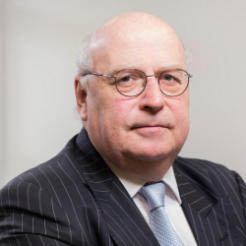Public perception of what charities do can be very different to the truth and an "intelligent engagement with the public" is needed to address this, the chief executive of the NCVO said yesterday.
Speaking during a discussion on the funding review at the Charity Finance Group risk conference, Sir Stuart Etherington told delegates that there must be a debate to discuss what the public really need to know and how data should be provided.
"For some donors, their perception of what charities do doesn't have much relation to what charities actually do," he said.
He said that this gap was difficult to close, and that some charities have attempted to solve this problem by "putting more and more numbers out there". However he suggested that this was not the correct way to handle the issue.
He said: “We need an intelligent engagement with the public about data available.”
Fellow panellist Caron Bradshaw, chief executive of the CFG, said there was a greater drive for charities to make more data available. She said that the sector must become used to doing this under the public gaze.
Bradshaw added that pensions is another huge risk for the sector, especially as it could, from a funding perspective, take whole organisations down if they happen to be a part of a multi-employee non-segregated scheme.
Etherington said he agreed with that, adding that it is an issue for the whole country, not just the sector.
In response to a question on how charities should deal with cuts to government grants, Sir Stuart said that charities need to respond to these by acting in consortia to secure bigger contracts.
He said that this “has proved quite successful in Transforming Rehabilitation, where voluntary organisations have done much better than in the Work Programme”.
Diversifying income streams
Peter Lewis, chief executive of the Institute of Fundraising, said more attention should be drawn to fundraising income, and diversifying this.
He said: “We think the real sustainability of charities would come diversifying those income streams and making sure that every charity, no matter how big, is confident enough to ask for local support from local businesses and the wealthy in the local communities, as well as seeking funding from local authorities”.
Lewis added that fundraising income is on the rise as the British public are good at putting their hands in their pockets, and that the most important relationship for a charity is with its donors. However he suggested that grant-giving organisations should include funding for the development of fundraising skills in sustainability grants.









